Decriminalising Hobbes

Interview by Richard Marshall

'I struggled with the fact that the standard Hobbes we all learned attributed to him the view that-- to put it crudely-- governmental might plus citizen fright makes social order. That standard view (I subsequently came to call it “your father’s Hobbes”) implausibly insisted that people supposedly care most, or only, for their own survival, so all a government need do is credibly threaten them with capital punishment and voila, peace and stability! I found it hard to believe that Hobbes had been so stupid as not to recognize the insufficiency of brute coercion “all the way down”'
'What I “corrected” was just the impoverished conception of Hobbesian humans’ psychology, and the corresponding picture of Hobbes’s central analysis of social disorder, and Hobbes’s proposed remedy for it, which I argued demanded engagement with the content of people’s socially disruptive transcendent interests. In short, I pulled out the narrow egoism peg supporting the traditional structure of Hobbes interpretation and watched the whole thing collapse into dust.'
'According to Hobbes, an individual’s beliefs are the product of their bodily constitution (we would say their brain chemistry), personal experience, upbringing and education, their powers of reason, and facility in seeing sameness and difference (which he terms ‘wit’). So education, or social indoctrination into correct conceptions of civic and religious duty, by the family and from the pulpit (ultimately emanating from the universities) is hugely important.'
'In the 1980s, Greg Kavka used Hobbes to ground and refine the theory of nuclear deterrence . He liked to say that although my Hobbes was probably historically correct, his game-theoretic rational-choice Hobbes was more interesting because more applicable to current events. But that was before 9/11. What could be more relevant today than Hobbes’s treatment of social instability resulting from the action on the transcendent interests of religious zealots and their dutiful followers?'
'Hobbes recognized that fear doesn’t reliably motivate political compliance, that stability requires that people’s most cherished commitments-- moral, religious, or personal--- actively support, or at a bare minimum don’t conflict with, the demands of the political system.'
'I should say that the natural law part of Hobbes’s philosophy is central, and interpretation of it forms the crux of disagreement over what his moral philosophy is, or whether he even has one at all. The moral philosophy he develops carves out an original and frankly exciting middle ground between universalizing accounts like Kant’s, and egoism. '
'Hobbes takes traditional Golden Rule morality and provides it a philosophical foundation by showing first, how this rule yields a set of norms that make peaceful social cooperation possible, and better, how this principle can be derived as a theorem of reason from our own conceptions of ourselves as rational animals and of what it is to have a reason. '
'What is unique and fascinating about Hobbes’s moral theory is that according to it, a moral judgment will be justified if and only if the person making it is prepared to apply it universally, but there can be different strokes for different folks. It is not required that the judgment be fully universalizable regardless of anyone’s perspective, but it is also not sufficient that the agent makes that judgment in her own case alone. To illustrate: if I condemn you for cheating on your spouse but am unwilling to condemn myself when I do the same, I act immorally; whereas if I condemn neither of us for cheating, I do nothing wrong when I cheat. And if you condemn cheating and I don’t, you do wrong to cheat and I do no wrong when I cheat.'
Sharon Lloyd works in the history of political philosophy, with special attention to the moral and political theory of philosopher Thomas Hobbes. Trained and mentored by John Rawls, one of the most influential political philosophers of the 20th century, Lloyd's scholarly interests in political philosophy and its history, contemporary liberalism and liberal feminist philosophy reflect that tutelage. She has particular interest in the moral and political theories of Machiavelli, Mill, Hobbes, Marx, and Rawls. Here she discusses Hobbes, saying that she saw it as '... the chance to explain what I see in Hobbes. I appreciate the opportunity to de-criminalize him. He should be accessed as a beacon of light rather than shunned as a murk of dark erroneous egoism in our cannon.' She explains what the standard view of Hobbes is, Hobbes views about beliefs, Hobbes and the contemporary political landscape, Hobbes and consensus, how Hobbes deals with conflict rooted in transcendental interest, why he produced a theory of mind over matter even though he was an ontological materialist, whether he must have had an underpinning moral theory and the resources Hobbes provides to make sense of our post-Kantian contemporary landscape.

3:16: What made you become a philosopher?
Sharon Lloyd: I think it was a sort of happy accident. I do remember worrying at around age 10 about how to choose the most valuable way to live, but gave up in frustration because it seemed that for any worthy proposal (e.g. be a doctor to heal patients) there was always some other perspective from which that life plan appeared parochial (e.g. do research to eradicate disease, exercise political power to reduce injuriuous warfare, comfort through art, contribute to forestalling the destruction of the planet, etc. When I concluded that there was no uniquely sound argument establishing the most valuable kind of life to live, I decided just to do what I was particularly good at, which was dancing—a life in the body and not of the mind. After an early career earning a union wage as a dancer, and in my first freshman quarter at UCLA as a declared Theatre Arts major I stumbled into a philosophy of religion class-- engaging the problem of evil-- and a skepticism and rationality class—addressing the existence and our knowledge of the external world and of other minds. They hooked me. I jumped, both feet first, into metaphysics and epistemology and Wittgenstein. I loved the philosophical process of challenging ideas I had taken for granted, and I loved solving puzzles. Never did take a single Theatre Arts class. I had no interest in political philosophy then, let alone in Hobbes, even though first Greg Kavka and then Jean Hampton—the two leading lights of 1980s game-theoretic approaches to Hobbes interpretation—were there one after the other and taught Hobbes in courses I did not take. But I learned a lot of Marx from history and sociology and political science departments, and started to worry about social justice. I ultimately decided that if I were going to pursue philosophy as a career, I wanted to work in an area that had more real world importance than the kind of philosophy I’d been doing, so I chose a graduate program where I could retool for political philosophy. That was a steep learning curve, because good political philosophy isn’t about finding clever solutions to problems manufactured by linguistic tricks. Serious issues require a serious approach; it’s not just fun and games and mental masturbation anymore. Training with John Rawls taught me the value of works in the history of political philosophy, an acquired sensibility that has enriched my life immeasurably. And I hope I have paid it forward in my work to show the contemporary relevance of Hobbes for our social world.
3:16: First, can you sketch what the standard approach to Hobbes says that your position corrects?
SL: I can, but you will understand better if you follow along my own circuitous route to that epiphany. I was sitting in Harvard’s law library when I learned In a footnote to one of his Dewey Lectures, that Rawls remarks that social and political systems at odds with people’s interests will require an ideology (in Marx’s sense of requiring either illusion about how the system works, or delusion about our own interests) in order to remain stable. That seems obviously correct, and on the bus on my way home to my little apartment I struggled with the fact that the standard Hobbes we all learned attributed to him the view that-- to put it crudely-- governmental might plus citizen fright makes social order. That standard view (I subsequently came to call it “your father’s Hobbes”) implausibly insisted that people supposedly care most, or only, for their own survival, so all a government need do is credibly threaten them with capital punishment and voila, peace and stability! I found it hard to believe that Hobbes had been so stupid as not to recognize the insufficiency of brute coercion “all the way down”; so I went back to the texts. Sure enough, not only did Hobbes deny that social order can be reliably maintained by threat of force—“if men know not their duty, what is there that can force them to obey the laws? An army you will say. But what shall force the army?”—he also analyzed disorder as the effect of what I termed “transcendent interests”. These are interests for the sake of which a person is willing to sacrifice her life and narrow self-interest (health, wealth, comfort), if necessary to pursue what she cares most about, typically those of her ideals so dear to her that she thinks of them as her interests.
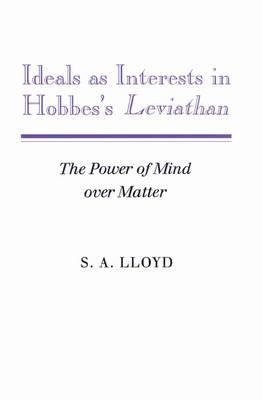
Religious martyrs and political revolutionaries may act on transcendent interests in salvation or self-determination, or justice, but so too may ordinary citizens volunteering for military service, or parents protecting their children, or even prideful people protecting their reputations (Hobbes was highly attuned to our concern for honor). We humans will self-sacrifice for all sorts of moral ideals and larger interests. (Hence the title of my 1992 book Ideals as Interests in Hobbes’s Leviathan.) Clearly, people motivated by transcendent interests cannot be consistently controlled by threatening them with even capital punishment. So what I “corrected” was just the impoverished conception of Hobbesian humans’ psychology, and the corresponding picture of Hobbes’s central analysis of social disorder, and Hobbes’s proposed remedy for it, which I argued demanded engagement with the content of people’s socially disruptive transcendent interests. In short, I pulled out the narrow egoism peg supporting the traditional structure of Hobbes interpretation and watched the whole thing collapse into dust. Then I placed it on a firmer, textually warranted basis, and suddenly, Hobbes’s political theory worked to solve his own problem, and became a plausible political philosophy.
3:16: How was the Civil War important to the formation of these ideas for Hobbes?
SL: It horrified him both in prospect and in the event, inducing him to set aside his work in natural philosophy in order to concentrate on civil philosophy. It also temporarily affected his philosophical method, moving him to include observation and people’s introspective experience to supplement speculations about motions of matter and abstract definitions. Hobbes tells us in Behemoth, his history of the causes and conduct of the English civil war, that ambitious sect leaders instilled and manipulated mistaken conceptions of religious duty and of the requirements of salvation in order to motivate ordinary people to support rebellion against the Crown. No sovereign has a big enough stick to coerce obedience from people who believe their obedience will cost them eternal life, or subject them to eternal torments. Hobbes explicitly grants that, and he does not condemn as irrational people’s concern for their eternal prospects. So stability is going to require engaging the beliefs that underwrite transcendent interests, and an adequate political philosophy will have to do just that.
3:16: Is Hobbes against reducing beliefs to deeper causes, of treating them as mere symptoms?
SL: According to Hobbes, an individual’s beliefs are the product of their bodily constitution (we would say their brain chemistry), personal experience, upbringing and education, their powers of reason, and facility in seeing sameness and difference (which he terms ‘wit’). So education, or social indoctrination into correct conceptions of civic and religious duty, by the family and from the pulpit (ultimately emanating from the universities) is hugely important. Hobbes doesn’t much consider whether one’s economic position may condition one’s beliefs, but nothing in his theory requires rejecting the claim that it could. What Hobbes does insist is that beliefs once formed cannot be altered by threat of force. So if mistaken beliefs about religious duty are the problem, the solution will have to be first to engage those beliefs with arguments to correct them. That is what Hobbes sees himself as doing in Part III of Leviathan, which undertakes to reinterpret Judeo-Christian Scripture so as to show its compatibility with obedience to whatever civil sovereign exists, no matter its policies, and in Part IV, which seeks to prevent backsliding by laying bare the unsavory origins of all these mistaken beliefs about religious duty. The second part of the solution is to institute a program of education to bring up the next generation to hold correct beliefs. Hobbes immodestly recommends to sovereigns that they do this by teaching Leviathan in the Universities!
3:16: Do you see our own contemporary political landscape vindicating this Hobbesian view?
SL: I do think Hobbes’s approach is instructive for our world, in which some religious zealots (the NYT columnist Thomas Friedman called them “undeterrables”) are prepared to carry out suicide missions to advance their ends. Hobbes’s recommendation to engage their religious views using the sources of religious knowledge they take to be authoritative, to see whether those can be interpreted in a way that shows them to condemn violent political resistance (thus turning their religion from a source of instability to a stabilizing force) makes a lot of sense, and is actually being tried. Efforts to reform the curricula of some madrassas so that they do not produce new generations of jihadists also echo Hobbes’s stress on the importance of education in causing or preventing the formation of potentially destabilizing transcendent interests.
Of course, Hobbes was worried specifically about Christian zealots, so he spends increasingly larger portions of each version of his political treatise analyzing and interpreting the Bible in order to show Christians that their authoritative source of religious knowledge actually requires political obedience. He does not attempt a similar project using the Qur’an. Some parts of his treatment of religion would carry over to the case of Muslims. He does determine what we can know about our religious duties on the basis of natural reason unaided by revelation—just from knowledge of the “laws of nature” accessible to all, and he does offer arguments to limit the authority of alleged direct personal revelations from God. Certainly, God could speak privately to an individual by supernatural vision or voice; but when he speaks in that manner, no one else is obliged to believe that He has done so, or to follow the alleged prophet.
Hobbes is such a rich resource that scholars use him to all sorts of contemporary purposes. In the 1980s, Greg Kavka used Hobbes to ground and refine the theory of nuclear deterrence . He liked to say that although my Hobbes was probably historically correct, his game-theoretic rational-choice Hobbes was more interesting because more applicable to current events. But that was before 9/11. What could be more relevant today than Hobbes’s treatment of social instability resulting from the action on the transcendent interests of religious zealots and their dutiful followers?
3:16: Is his solution one that is intended to result in a general consensus, where people converge on an agreed belief or set of beliefs or is it one that manages difference so the conflicting beliefs coexist but don’t erupt into a breakdown of governance?
SL: That is such an interesting question, and addressing it helps us to see how Hobbes pivots toward modernity. What distinguishes liberalisms is that they do not insist on general consensus at the level of day-to-day beliefs, but only on some meta-principle governing toleration of a range of difference, on grounds of equal consideration, or equal respect, or some other such ground, along with commitment to a procedure for resolution of disputes. Hobbes recognized that fear doesn’t reliably motivate political compliance, that stability requires that people’s most cherished commitments-- moral, religious, or personal--- actively support, or at a bare minimum don’t conflict with, the demands of the political system. He offers multiple arguments from the aims that people standardly take as reasons for action (prudential, moral, religious) that each of those aims is best served by submitting to a public judgment, which will then adjudicate private disputes. Each then will have her own principled reasons to defer to a public judgment to adjudicate disputes among citizens’ private judgments. Although we cannot expect people to agree on the particulars of religion or morality or everyday politics, it is enough for stability for them to agree to defer to the sentence of an arbiter; but to gain that agreement, each must be offered what she can regard as a sufficient (all things considered) reason to do so. Hobbes provides the model for how to do that. This may sound a bit like Rawls’s later idea of an “overlapping consensus” on the terms of a system of social cooperation. Indeed, once Rawls came to understand Hobbes’s project the way I do, he wondered out loud whether Hobbes rather than himself may have been the first “political liberal”.
3:16: You also show that Hobbes worked out an original method for addressing social conflict rooted in transcendent interest. Can you sketch out what his method was?
SL: Sure. His method for addressing conflict was to begin from the interests and beliefs each person takes as her own, and then forge from them an argument to the desired conclusion. Rather than what? Well, rather than the usual thing where people offer considerations that you don’t care about at all, and so that are never going to persuade you. You argue x, and instead of engaging your argument, they offer an entirely different argument for not x, or even for y! For instance, you argue that abortion should be illegal because it is the killing of an innocent person and the Bible forbids that, and I reply that abortion should be legal because control over reproduction is essential for women’s equality. Total disconnect. Had I read my Hobbes, I would be seeing whether I can show you that your authoritative text does not forbid all killing of innocent people, or does not regard fetuses as people, or alternatively, that it privileges women’s equality when values are in conflict, or (more alternatively still) that the parts of the Bible you are drawing on don’t actually have authority (say, they appear in books that are not canonical).
Hobbes’s method at the most general level of description is to provide for each person what she can regard, given her own particular beliefs and interests, as a “sufficient reason”—a reason she will see as not overridden by contrary reasons—for doing/refraining from doing what social peace requires. Part of this involves meeting the individual where she is. I may care about securing my eligibility for salvation, so I will be moved by Hobbes’s argument that a correct interpretation of the Bible shows that obeying the sovereign is a necessary condition of salvation; whereas you, concerned only to rear your children safely to adulthood may by moved by Hobbes’s argument that general safety is best achieved by obeying the sovereign. We converge for different reasons on the same course of action.
The other element of Hobbes’s method is to identify any common source for argument and use it to settle a bank of what today we call public reason. Natural law provides a universal source of public reason. Its basic requirement is that we hold ourselves to the same standards we impose on others; Hobbes identifies that reciprocity requirement with the Golden Rule. Because we must , for our own sakes, demand that others not insist on acting on their own private judgment but rather submit to adjudication of their disputes with us, reciprocity requires we do the same. What a sovereign is, at its most basic, is a designated adjudicator functioning as the public reason. The natural law provides the common denominator of normative requirements, which then receive reinforcement in different ways from the different particular commitments of individuals.
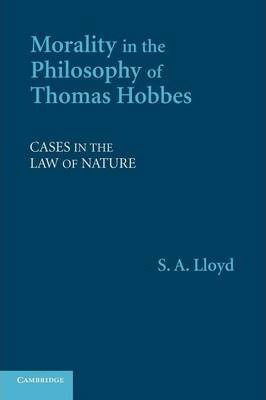
I should say that the natural law part of Hobbes’s philosophy is central, and interpretation of it forms the crux of disagreement over what his moral philosophy is, or whether he even has one at all. The moral philosophy he develops carves out an original and frankly exciting middle ground between universalizing accounts like Kant’s, and egoism. As I see it, for Hobbes, an individual does wrong to act in some particular way that she would fault others for acting, but a different individual who does not fault that particular way of acting does not do wrong to act likewise. Hobbes develops a moral theory that is sensitive to the reactive attitudes of individual agents, but requires that those be filtered through a reasoned demand for reciprocity. I found this so fascinating that in 2009 I wrote a whole other book on morality in Hobbes’s philosophy.
Back though to public reason, among Christians, the Bible may serve as another source of public reason, (when interpreted, as Hobbes interprets it, to square with natural law). Significantly, it cannot be known in advance whether Muslims’ sacred text can be so interpreted as to support the demand of political obedience entailed by natural law. Insofar as the text is true, it will be interpretable as compatible, according to Hobbes, because God’s activity in the world ensures that all truths hang together. He argues the same in his defense of Galileo, insisting that if Galileo is right about the motion of the earth, that cannot be contrary to true religion, but only contrary to a mistaken interpretation of Scripture. God organizes the natural world; He doesn’t make mistakes, and He doesn’t change his mind, so whatever seems to us to be an inconsistency between the truths of science and the truths of religion is just a fault in our interpretation. For Hobbes, Scriptural interpretations must be revisited when they conflict with science.
3:16: Hobbes was an ontological materialist wasn’t he… so isn’t it odd that you’re suggesting that he produced a theory of mind over matter?
SL: It does sound odd. It would indeed be odd, if we assume that the mind is some sort of immaterial substance akin to the Schoolmen’s conception of the soul; but Hobbes saw no good reason to think that. When we talk about mind over matter, we mean that sometimes we can activate our judgments, beliefs, or powers of reason to refrain from acting on an impulse or suggestion offered by our body. E.g., I can refuse to eat even though hungry because I am on a hunger strike to protest an injustice. Whether my ability to do this is a function of my material brain or something else is immaterial . What matters is that our thoughts very often drive our actions. Hobbes did think that people naturally desire to avoid violent death, and so that we should morally excuse the actions people do when they sincerely believe those actions necessary to avoid violent death. But he saw that the natural fear of violent death is routinely overridden by acculturated fears of dishonor or damnation, and hopes of moral or material gain.
Being an ontological materialist raises two sorts of questions, both of which Hobbes addressed. The first is, does this materialism make us all mere billiard balls being knocked about with no agency? Hobbes argued extensively for a compatibilist position, according to which the fact that what happens is strictly determined does not undermine our agency. The second question is, how can matter think? Nice of you to ask. What does our best current science say? Hobbes tried. He made a distinction between mindless bodies and thinking bodies, positing two types of material. Whether the mindful type operates to pursue ideals over preservation is the least of our philosophical problems.
Traditional interpretations of Hobbes deemed it impossible for Hobbes to have any genuinely moral theory because people’s bodies automatically move toward what enhances vital motion (circulation of the blood) and away from what decreases it, and so (it was said) it makes no sense to talk about what people ought to do, for “ought implies can”, and people can’t do anything but pursue vital motion. People are necessarily egoistic because everything is all about keeping their own vital motions. Those traditional interpreters seem never to have considered, as Hobbes did, that our ideas can stimulate or impede vital motion, so that the thought of pursuing justice might enhance, and the fear of damnation might arrest, vital motion. And you can imagine the contortions proponents of this view performed upon learning that Hobbes was primarily concerned with transcendent interests, which completely override our concern to continue our vital motion. Hobbes tells the story of a group of maidens who were hanging themselves out of some romantic notion, until the village elders decreed that maidens who killed themselves would have their bodies stripped naked for all to see, which put an end to those suicides of girls who (Hobbes remarks) cared more for their honor than for their lives. Just consider that story for a moment. Romantic ideas overrode those girls’ natural impulse to sustain their vital motion, and their ideas of modesty in turn overrode their romantic ideas. How do we imagine that a person like Hobbes who understands that kind of psychology thinks humans incapable of being motivated by moral considerations?
Once we correct the misconception that people cannot be morally motivated because moral motivation requires consideration of others and Hobbesian men can have no consideration for others, we are free to consider what Hobbesian moral theory actually is. It turns out to be based on a simple principle of reciprocity—treat others as you demand that they treat you—grounded in an acknowledgment of human equality. Hobbes takes traditional Golden Rule morality and provides it a philosophical foundation by showing first, how this rule yields a set of norms that make peaceful social cooperation possible, and better, how this principle can be derived as a theorem of reason from our own conceptions of ourselves as rational animals and of what it is to have a reason.
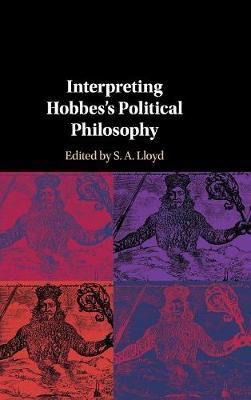
3:16: Is it your view that to make sense of his politics—in particular his idea of civil disorder as a result of transcendent interests, then Hobbes must have had a moral theory underpinning it and that the traditional interpretation of the Laws of Nature must be in error?
SL: Yes and no. The traditional understanding of the Laws of Nature is mistaken, for sure. In my first book I treated Hobbes’s political theory as independent from his moral theory because I then believed that he had no proper moral theory. Rawls persuasively argued for the independence of political philosophy from moral philosophy (and every other genre of philosophy), and he is right about that. As it turned out, Hobbes’s political theory can stand on its own without any moral philosophy. But I later discovered that Hobbes does have a moral theory, actually an original and formidable one, that does provide support for his political theory.
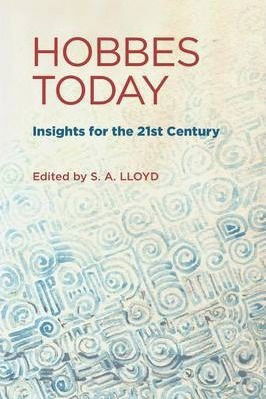
3:16: You argue that this approach gives us a useful resource for thinking in what you call our ‘post-Kantian’ moral landscape… can you explain what you mean…?
SL: Kant’s substantive ethics introduced an alpha rule requiring that we act only on universalizable principles. It’s fair to say that some modern thinkers, for example Bentham and his utilitarian followers, accept that rule as well. But also post Kant we have metaethical theories that doubt that moral judgments are anything more than expressions of personal attitudes. What is unique and fascinating about Hobbes’s moral theory is that according to it, a moral judgment will be justified if and only if the person making it is prepared to apply it universally, but there can be different strokes for different folks. It is not required that the judgment be fully universalizable regardless of anyone’s perspective, but it is also not sufficient that the agent makes that judgment in her own case alone. To illustrate: if I condemn you for cheating on your spouse but am unwilling to condemn myself when I do the same, I act immorally; whereas if I condemn neither of us for cheating, I do nothing wrong when I cheat. And if you condemn cheating and I don’t, you do wrong to cheat and I do no wrong when I cheat. Hobbes theorizes a semi-relativized ethics, which predates but is new to our post-Kantian landscape. I think his idea has possibilities.
I have also been putting out work lately on Hobbes’s treatment of “the woman question”, seeking to determine how much of his portrait of men as prideful, self-partial, easily offended and easily deceived is plausibly applied to women.
3:16: Are there five books you could recommend that will take us further into your philosophical world?
SL: To live with me in my philosophical world you would have to be as concerned as I am about both the horrors of a lack of effective governmental power, and about abuses of that power, while enjoying imaginative proposals to transcend those. Government puts me in mind of the way ladies used to quip about men in the 1950s: “ya can’t live with them, and ya can’t live without them.” That is actually true about government (no disrespect to men); government is not dispensable, but persistently problematic. Today the United States exemplifies an incomplete removal from the Hobbesian state of nature; every few months young men use legally purchased military assault automatic weapons to mass murder worshippers in church, little children in grammar school, shoppers in Walmart, you name it. The challenge for Americans is to forge a government that can constrain those sorts of wild-west yahoo behaviors without itself becoming a predator. And Hobbes is especially instructive for this because he theorizes the conceptual instability of anything short of absolute unlimited, undivided, sovereignty, the scariest seeming government of all, so he provides a fixed star from which we can triangulate. I worry particularly about power relations, influence relations, and the defensibility of the social inculcation of individuals’ conceptions of their interests, with special concern for effects on women, and effects of religion.
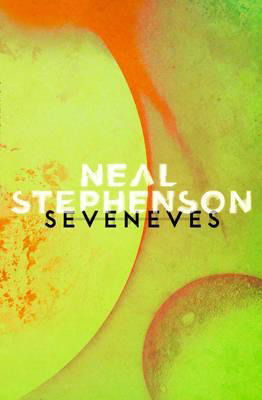
Science fiction helps! Of relatively recent work I’d recommend Neil Stephensen’s novel Seveneves
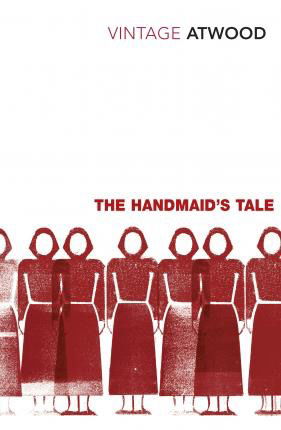
and Margaret Atwood’s Handmaid’s Tale
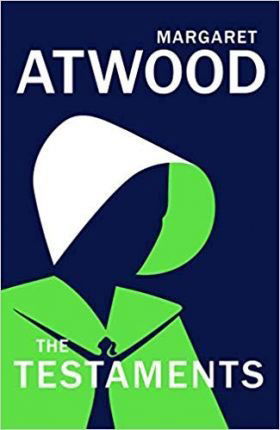
with sequel

and Oryx and Crake (trilogy). The Atwood novels show how easily a republic might become a theocracy, and the perils of consumer culture when combined with technological advancement. Seveneves considers how we might reform human nature to fit our social objectives rather than shape social institutions and practices to channel existing human nature.
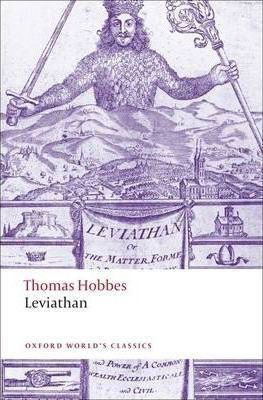
It won’t surprise you that I think there is a lot of value in reading Hobbes’s Leviathan all the way through, indeed starting from chapter 31 where Hobbes says we can’t know of any civil command whether we should obey until we know what God’s laws require of us, then backtracking to parts one and two after completion of parts three and four. That order of reading helps to overcome our prejudices about Hobbes’s method and the problem he sees himself as addressing. My 2019 book, Interpreting Hobbes’s Political Philosophy, in which Hobbes scholars survey the literature on their respective topics will give you the best grip on the field.

I also find plays like Bernard Shaw’s Saint Joan
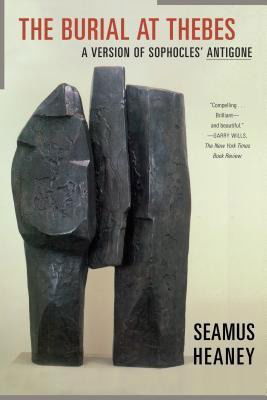
and Sophocles’s Antigone the best way to feel viscerally what is at stake in these otherwise abstract philosophical arguments.
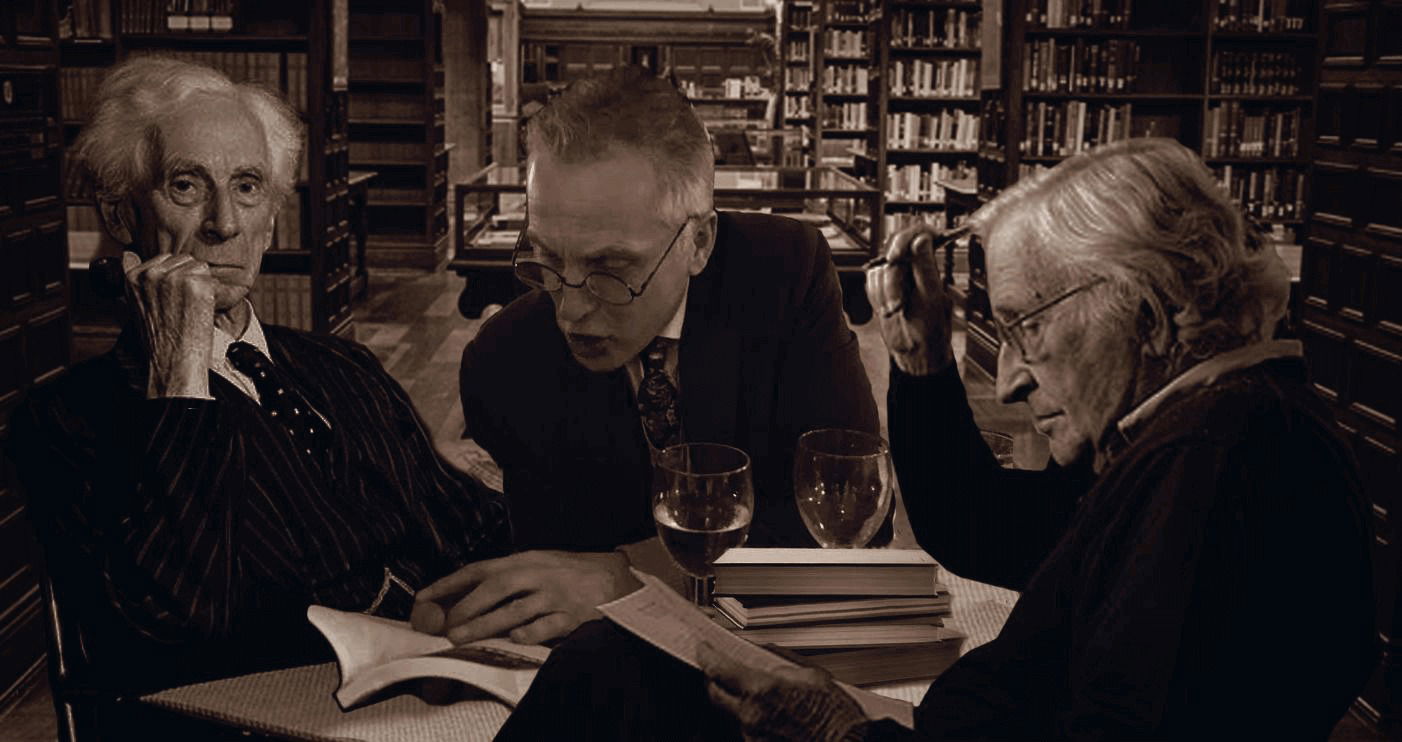
ABOUT THE INTERVIEWER
Richard Marshall is biding his time.
Buy his new book here or his first book here to keep him biding!
End Times Series: the index of interviewees